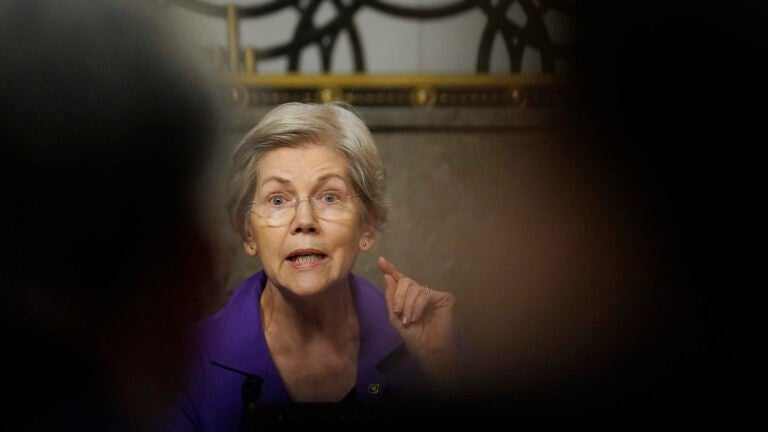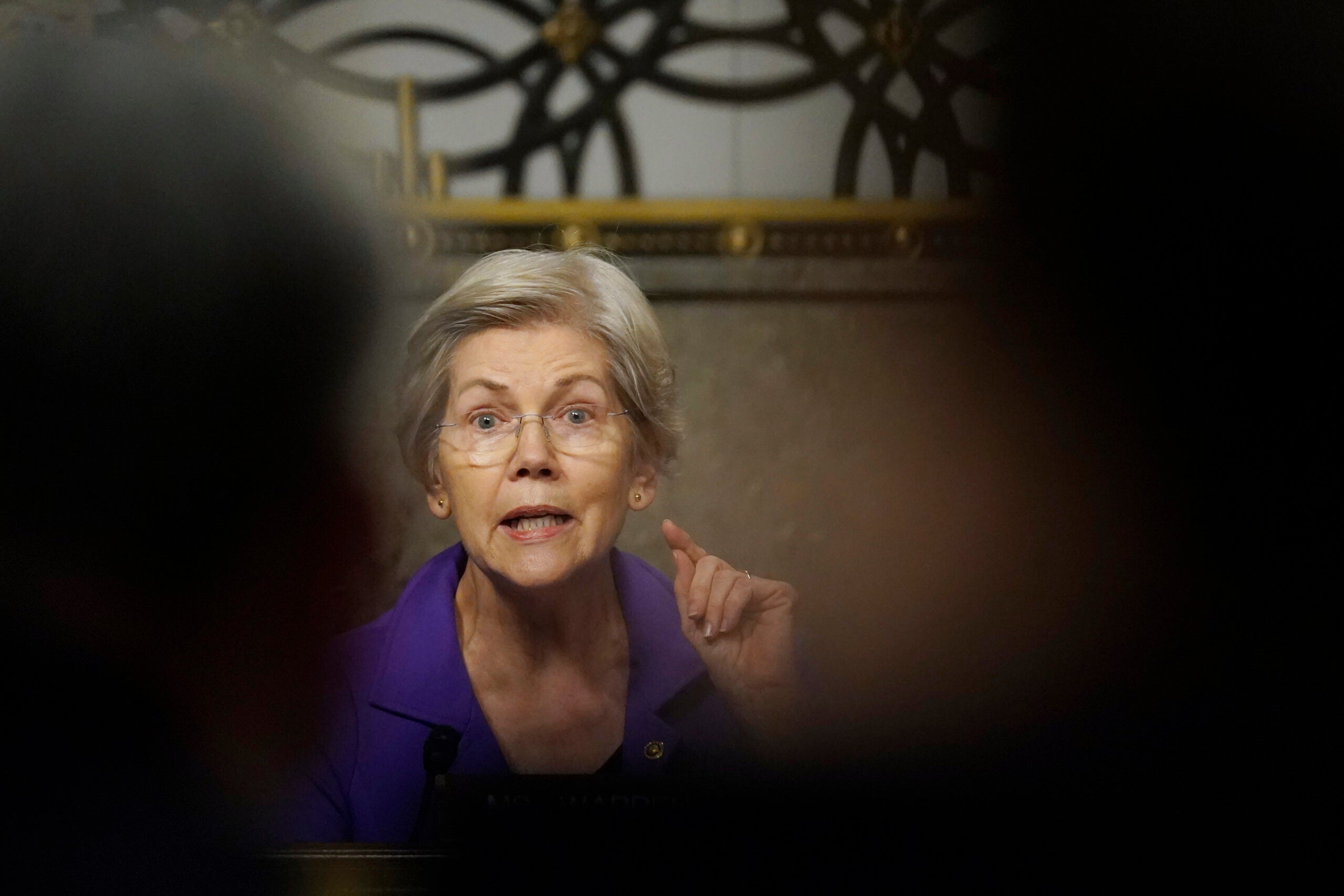[ad_1]
Politics
“These recent bank failures are the direct result of leaders in Washington weakening the financial rules,” Warren wrote.

Senator Elizabeth Warren weighed in on the recent collapse of Silicon Valley Bank (SVB) Monday.
The Massachusetts Democrat penned an opinion piece in The New York Times that laid out what she believes caused the bank’s implosion and how officials should proceed from here.
Last week, the bank was shut down and taken over by federal regulators due to a chain reaction caused by the U.S. Federal Reserve raising interest rates to fight inflation, Reuters explained.
Warren pointed the finger at the erosion of strict financial rules.
“These recent bank failures are the direct result of leaders in Washington weakening the financial rules,” Warren wrote.
In her guest essay, Warren pointed towards the fallout of the 2008 financial crisis, which prompted Congress to pass the Dodd-Frank Act. That legislation was designed to protect consumers and make sure large banks could not “take down the economy” in the same way that they did before, according to Warren.
Wall Street Executives, including SVB Chief Executive Greg Becker, lobbied congress to weaken the law. This effort was successful in 2018, Warren wrote, when President Donald Trump signed off on rolling back essential parts of Dodd-Frank.
“Regulators, including the Federal Reserve chair Jerome Powell, then made a bad situation worse, letting financial institutions load up on risk,” she wrote.
Last week, Warren grilled Powell on the Senate floor about the unemployment risks created by efforts to rein in inflation.
When interest rates rise, investors generally avoid risk, according to Reuters. Technology startups, the main customers of SVB, were especially impacted because investors became more risk-averse.
Private fundraising became more expensive, and initial public offerings were shut down for many startups. Some SVB clients began pulling their money to meet new liquidity needs, causing SVB to look for ways to meet those withdrawals, according to Reuters.
Warren said that she fought against the 2018 changes, citing a speech she gave warning that banks would have an easier time running up risk and therefore putting constituents at risk.
“SVB suffered from a toxic mix of risky management and weak supervision. For one, the bank relied on a concentrated group of tech companies with big deposits, driving an abnormally large ratio of uninsured deposits. This meant that weakness in a single sector of the economy could threaten the bank’s stability,” Warren wrote.
The bank did not manage that risk, she continued. Instead, SVB put deposits into long-term bonds that made it more difficult for the bank to respond to a drawdown. This worked in the short-term, driving up profits almost 40 percent over the last three years, Warren wrote. But now the cost has become apparent.
Banks like SVB would have been subject to “stronger liquidity and capital requirements to withstand financial shocks” had lawmakers not rolled back strict oversight, Warren wrote. SVB could not withstand the pressure of a bank run because, in part, it had not been required to conduct regular stress tests to pinpoint vulnerabilities.
Warren also expressed skepticism about regulators’ claims that banks will bear the cost of protecting deposits, rather than taxpayers. In doing so, she brought another hot-button financial issue to readers’ attention: student debt cancellation.
“But it’s no wonder the American people are skeptical of a system that holds millions of struggling student loan borrowers in limbo but steps in overnight to ensure that billion-dollar crypto firms won’t lose a dime in deposits,” Warren wrote.
The senator listed a series of actions that she believes are necessary to prevent further instances of what happened to SVB.
First, Warren wrote, Congress, the White House and banking regulators need to reverse the bank deregulation of the Trump era. She said that bank regulators must take a close look at America’s financial institutions to find other dangers, and that Senate Republicans must demand stronger oversight.
Second, she argued that regulators should reform deposit insurance so that businesses trying to make payroll are fully covered. In addition, regulators should ensure that the onus of protecting outsized depositors is on the financial institutions that pose the greatest risk.
“Never again should large companies with billions in unsecured deposits expect, or receive, free support from the government,” Warren wrote.
Lastly, Warren said that those responsible for this risky behavior should not be rewarded. Executives like Becker must be held accountable.
“Mr. Becker of S.V.B. took home $9.9 million in compensation last year, including a $1.5 million bonus for boosting bank profitability — and its riskiness. Joseph DePaolo of Signature got $8.6 million. We should claw all of that back, along with bonuses for other executives at these banks,” Warren wrote. “Where needed, Congress should empower regulators to recover pay and bonuses. Prosecutors and regulators should investigate whether any executives engaged in insider trading or broke other civil or criminal laws.”
Newsletter Signup
Stay up to date on all the latest news from Boston.com
[ad_2]
Source link





